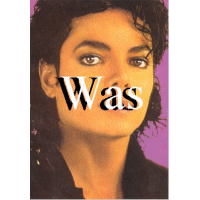

 |
To anyone who lived in Los Angeles in January 1994, there were two main topics of discussion -- the earthquake and the Jackson settlement. On January 25, Jackson agreed to pay the boy an undisclosed sum. The day before, Jackson's attorneys had withdrawn the extortion charges against Chandler and Rothman.
The actual amount of the settlement has never been revealed, although speculation has placed the sum around $20 million. |
"Remember, this case was always about money," Pellicano says, "and Evan Chandler wound up getting what he wanted." Since Chandler still has custody of his son, sources contend that logically this means the father has access to any money his son gets.
By late May 1994, Chandler finally appeared to be out of dentistry. He'd closed down his Beverly Hills office, citing ongoing harassment from Jackson supporters. Under the terms of the settlement, Chandler is apparently prohibited from writing about the affair, but his brother, Ray Charmatz, was reportedly trying to get a book deal.
In what may turn out to be the never-ending case, this past August, both Barry Rothman and Dave Schwartz (two principal players left out of the settlement) filed civil suits against Jackson. Schwartz maintains that the singer broke up his family. Rothman's lawsuit claims defamation and slander on the part of Jackson, as well as his original defense team -- Fields, Pellicano and Weitzman -- for the allegations of extortion. "The charge of [extortion]," says Rothman attorney Aitken, "is totally untrue. Mr. Rothman has been held up for public ridicule, was the subject of a criminal investigation and suffered loss of income." (Presumably, some of Rothman's lost income is the hefty fee he would have received had he been able to continue as Chandler's attorney through the settlement phase.)
As for Michael Jackson, "he is getting on with his life," says publicist Michael Levine. Now married, Jackson also recently recorded three new songs for a greatest-hits album and completed a new music video called "History."
And what became of the massive investigation of Jackson? After millions of dollars were spent by prosecutors and police departments in two jurisdictions, and after two grand juries questioned close to 200 witnesses, including 30 children who knew Jackson, not a single corroborating witness could be found. (In June 1994, still determined to find even one corroborating witness, three prosecutors and two police detectives flew to Australia to again question Wade Robson, the boy who had acknowledged that he'd slept in the same bed with Jackson. Once again, the boy said that nothing bad had happened.)
The sole allegations leveled against Jackson, then, remain those made by one youth, and only after the boy had been give a potent hypnotic drug, leaving him susceptible to the power of suggestion.
"I found the case suspicious," says Dr. Underwager, the Minneapolis psychiatrist, "precisely because the only evidence came from one boy. That would be highly unlikely. Actual pedophiles have an average of 240 victims in their lifetime. It's a progressive disorder. They're never satisfied."
Given the slim evidence against Jackson, it seems unlikely he would have been found guilty had the case gone to trial. But in the court of public opinion, there are no restrictions. People are free to speculate as they wish, and Jackson's eccentricity leaves him vulnerable to the likelihood that the public has assumed the worst about him.
So is it possible that Jackson committed no crime -- that he is what he has always purported to be, a protector and not a molester of children? Attorney Michael Freeman thinks so: "It's my feeling that Jackson did nothing wrong and these people [Chandler and Rothman] saw an opportunity and programmed it. I believe it was all about money."
To some observers, the Michael Jackson story illustrates the dangerous power of accusation, against which there is often no defense -- particularly when the accusations involve child sexual abuse. To others, something else is clear now -- that police and prosecutors spent millions of dollars to create a case whose foundation never existed.